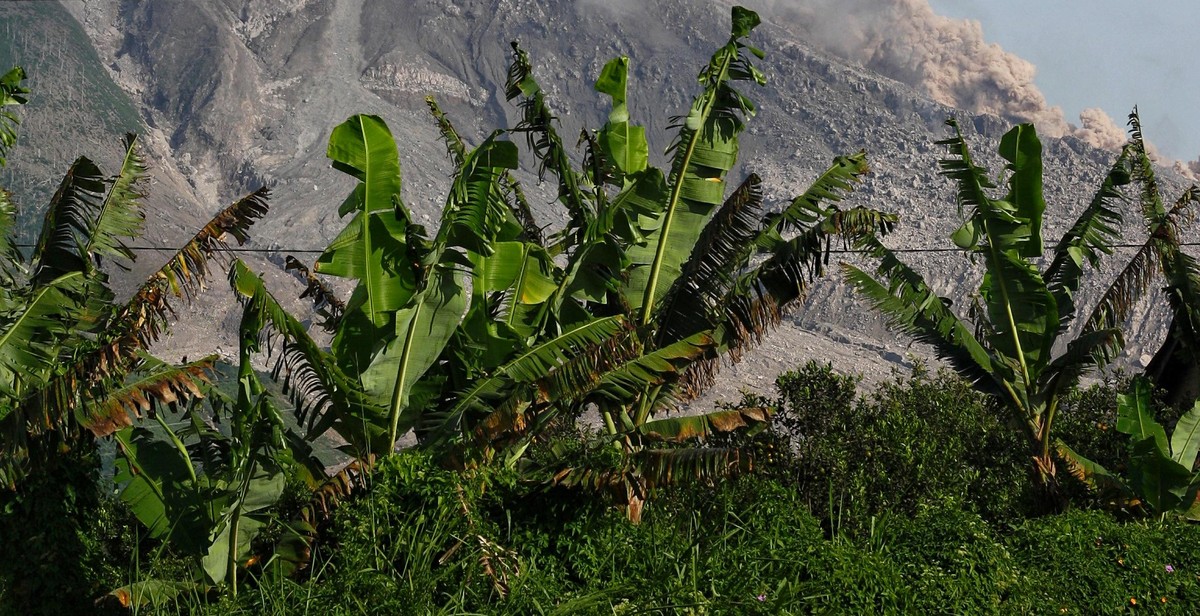How to Contribute to Volcano Citizen Science Projects: Participating in Volcanic Research as an Amateur Scientist
Are you fascinated by volcanoes and want to contribute to the scientific research on them? You don’t have to be a professional scientist to participate in volcano citizen science projects. As an amateur scientist, you can still make valuable contributions to the study of volcanoes and help scientists better understand these powerful natural phenomena.
What is Citizen Science?
Citizen science is a collaborative effort between professional scientists and members of the public to collect and analyze data for scientific research. It allows non-scientists to participate in research projects and contribute to scientific discoveries.
Why Participate in Volcano Citizen Science Projects?
Volcano citizen science projects offer a unique opportunity to contribute to scientific research and learn more about volcanoes. By participating in these projects, you can:
- Help scientists monitor and study volcanoes
- Learn about the geology and natural history of volcanoes
- Connect with a community of like-minded individuals
- Contribute to scientific discoveries
How to Get Involved in Volcano Citizen Science Projects
There are many ways to get involved in volcano citizen science projects. Some projects require specialized equipment or training, while others can be done with just a smartphone and an internet connection. Here are some ways you can participate:
- Join a citizen science organization that focuses on volcanoes
- Participate in volcano monitoring programs
- Report volcanic activity to scientists
- Contribute to volcano research projects online
| Tip: | Check out volcano citizen science projects on websites such as Zooniverse, SciStarter, and Citizen Science Alliance. |
|---|

What is Citizen Science?
Citizen Science is a collaborative process of scientific investigation where members of the public participate in scientific research projects. It is a way for amateur scientists to contribute to scientific knowledge and help solve real-world problems by collecting and analyzing data.
Defining Citizen Science
Citizen Science projects can involve a wide range of scientific disciplines, including biology, astronomy, geology, and environmental science. These projects can be conducted both online and in the field, and participants can contribute to data collection, analysis, and interpretation.
There are many different types of Citizen Science projects, from monitoring bird populations to tracking the spread of invasive species. Some projects may require specialized training or equipment, while others can be done with nothing more than a smartphone.
Benefits of Citizen Science
Citizen Science is a win-win for both scientists and the public. For scientists, it provides a way to collect large amounts of data that would be impossible to gather otherwise. This data can be used to answer important scientific questions and inform public policy decisions.
For the public, Citizen Science provides an opportunity to learn about science and become actively involved in the scientific process. It can also be a way for individuals to contribute to causes they care about, such as environmental conservation or public health.
Overall, Citizen Science is a powerful tool for engaging the public in scientific research and advancing our understanding of the world around us.

Why Volcano Citizen Science?
Volcano citizen science is an excellent way for amateur scientists to contribute to the research and understanding of volcanic activity. Volcanoes are fascinating natural phenomena that have a significant impact on our environment, economy, and society. Understanding their behavior is crucial for predicting eruptions and minimizing their impact on human life.
Importance of Volcano Research
Volcano research is critical for a variety of reasons. Firstly, it helps us understand the geological processes that shape our planet. Secondly, it provides insights into the impact of volcanic activity on climate change. Thirdly, it helps us develop strategies to mitigate the impact of volcanic eruptions on human life and infrastructure.
However, volcano research is a challenging and complex field. Professional scientists face several obstacles, including a lack of funding, limited access to remote volcanic sites, and the risk of personal injury or death. This is where citizen science comes in.
Challenges Faced by Professional Scientists
Professional scientists face several challenges when it comes to volcano research. One of the biggest challenges is funding. Volcano research is an expensive endeavor, and many scientists struggle to secure the necessary funding to conduct their research.
Another challenge faced by professional scientists is access to remote volcanic sites. Many of the world’s most active volcanoes are located in remote regions, making them difficult to access. This can limit the amount of data that scientists can collect, hindering their research efforts.
Finally, volcano research is a dangerous field. Scientists risk personal injury or death when working in close proximity to active volcanoes. This risk can deter many scientists from pursuing research in this field.
| Benefits | Description |
|---|---|
| Increased Data Collection | Citizen scientists can collect data from a larger number of locations, providing a more comprehensive view of volcanic activity. |
| Cost-Effective | Citizen science projects are often more cost-effective than professional research, making them an excellent option for limited budgets. |
| Increased Public Awareness | Citizen science projects can help raise public awareness about the importance of volcano research and the impact of volcanic activity on human life. |
In conclusion, volcano citizen science is an excellent way for amateur scientists to contribute to the research and understanding of volcanic activity. By participating in citizen science projects, individuals can help overcome the challenges faced by professional scientists and contribute to the greater body of knowledge about volcanoes.

How to Contribute to Volcano Citizen Science
Participating in a volcano citizen science project can be a rewarding experience for amateur scientists who want to contribute to scientific knowledge and help monitor volcanic activity. Here are some steps to get started:
Find a Citizen Science Project
There are many volcano citizen science projects available for volunteers to participate in. You can search for projects online or through scientific organizations that focus on volcanology. Some popular projects include the Global Volcanism Program, the Smithsonian Institution, and the Volcano Observatory Best Practices Program.
Choose a Project that Matches Your Skills and Interests
When choosing a project, consider your skills and interests. Some projects require specific scientific knowledge, while others may be more suitable for volunteers who are interested in data collection or photography. Look for projects that match your skills and passions, so you can contribute to the project effectively.
Follow the Guidelines and Protocols
Each project has specific guidelines and protocols that must be followed to ensure that the data collected is accurate and useful. Make sure to read and understand the guidelines before participating in any project. This will help you avoid mistakes and contribute to the project’s goals effectively.
Collect and Record Data
Once you have chosen a project and familiarized yourself with the guidelines, it’s time to start collecting data. Depending on the project, you may need to take photographs, record measurements, or collect samples. Be sure to record your data accurately and consistently, so it can be used by researchers.
Submit Your Data to the Project Coordinator
After you have collected your data, submit it to the project coordinator according to the project’s guidelines. This may involve uploading your data to a website or sending it to the coordinator via email. Make sure to include all the necessary information and follow the submission instructions carefully.
By following these steps, you can contribute to volcano citizen science projects and help scientists better understand volcanic activity. Your contribution can make a real difference in scientific research and help protect communities living near active volcanoes.

Examples of Volcano Citizen Science Projects
Volcanoes are fascinating natural phenomena that have captivated human interest for centuries. With the advent of citizen science, amateur scientists can now contribute to the study of volcanoes and help advance our understanding of these majestic forces of nature. Here are some examples of volcano citizen science projects:
Volcano Monitoring in Hawaii
The Hawaiian Volcano Observatory (HVO) has been monitoring the active volcanoes in Hawaii since 1912. The HVO relies on citizen scientists to report volcanic activity and changes in volcanic behavior. The HVO also provides training for volunteers to learn how to monitor and report volcanic activity. Citizen scientists can help by reporting observations, taking measurements, and collecting samples of volcanic gases, rocks, and ash.
Volcanic Ash Collection in Iceland
The Icelandic Meteorological Office (IMO) has been conducting citizen science projects to collect volcanic ash samples from eruptions in Iceland. Citizen scientists can collect ash samples and send them to the IMO for analysis. The data collected from these samples helps scientists understand the composition and distribution of volcanic ash, which can have significant impacts on air travel and public health.
Volcano Observations in Italy
The Vesuvius Observatory in Italy has been conducting citizen science projects to monitor the activity of Mount Vesuvius. Citizen scientists can help by reporting observations of volcanic activity, taking measurements of volcanic gases, and collecting samples of volcanic rocks and ash. The data collected from these observations helps scientists understand the behavior of Mount Vesuvius and improve their ability to predict and mitigate volcanic hazards.
| Project | Location | Methods | Benefits |
|---|---|---|---|
| Hawaiian Volcano Observatory | Hawaii | Observations, measurements, sample collection | Improved monitoring and prediction of volcanic activity |
| Icelandic Meteorological Office | Iceland | Ash sample collection | Improved understanding of volcanic ash composition and distribution |
| Vesuvius Observatory | Italy | Observations, measurements, sample collection | Improved understanding and prediction of Mount Vesuvius behavior |

Conclusion
Participating in volcano citizen science projects is an exciting and rewarding way to contribute to scientific research while learning about the natural world. As an amateur scientist, you can make valuable contributions to the field by collecting data, analyzing samples, and sharing your observations with the scientific community.
Whether you are interested in geology, environmental science, or simply enjoy exploring the great outdoors, there are many opportunities to get involved in volcano citizen science projects. From monitoring volcanic activity to studying the wildlife that inhabits these unique environments, there is something for everyone.
By participating in volcano citizen science projects, you can also help to raise awareness about the importance of studying volcanoes and their impact on the environment. Your contributions can help scientists better understand volcanic activity, predict eruptions, and develop strategies to mitigate the risks associated with volcanic hazards.
So why not get involved in a volcano citizen science project today? Whether you join an existing project or start your own, you can make a real difference in the world of science and have fun doing it!
- Get involved in a volcano citizen science project today
- Contribute to scientific research
- Learn about the natural world
- Raise awareness about the importance of studying volcanoes
- Make a real difference in the world of science
| Project Name | Description | Website |
|---|---|---|
| Volcano Watch | Monitoring volcanic activity in Hawaii | https://www.usgs.gov/volcanoes/hawaiian-volcano-observatory |
| Volcanic Ash Advisory Centers | Reporting and forecasting the movement of volcanic ash clouds | https://www.wmo.int/pages/prog/www/VAAC/VAAC_Home.html |
| Global Volcanism Program | Maintaining a database of volcanic activity worldwide | https://volcano.si.edu/ |
